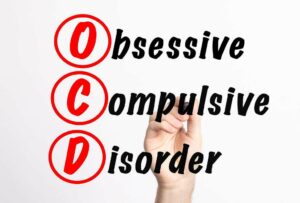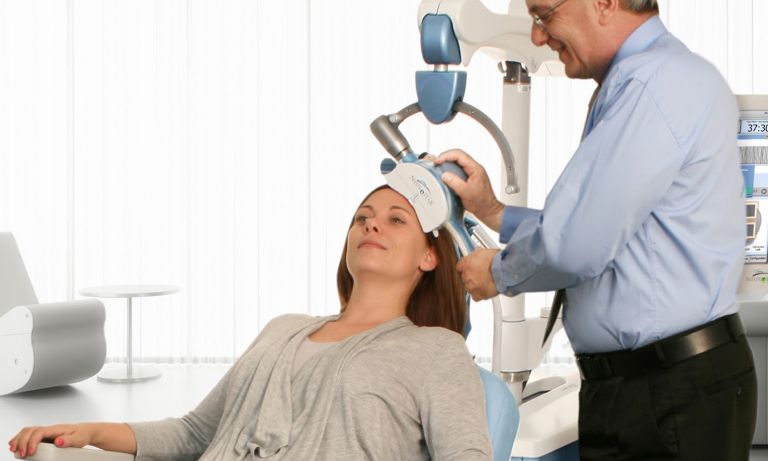Obsessive-compulsive disorder (OCD) can be a debilitating mental health condition that interferes with your daily life and routines. It’s estimated that 1 in 40 adults are living with OCD, many of whom struggle to find effective treatment. Fortunately, there is hope for those suffering from OCD. Holistic treatment for OCD can help individuals overcome their symptoms and improve their overall quality of life. In this blog post, we will explore the different types of holistic treatments available for individuals with OCD and how they can be used in concert to provide relief from the condition.
Contents
What is OCD?

Obsessive-compulsive disorder (OCD) is an anxiety disorder that affects people of all ages. It is characterized by obsessions, or unwanted and intrusive thoughts, that lead to compulsions, or repetitive behaviors that the person feels compelled to do to alleviate the anxiety caused by the obsessions.
There are two types of OCD: primary and comorbid. Primary OCD is when the disorder is the only diagnosis. Comorbid OCD is when the disorder co-occurs with another condition, such as depression or an eating disorder.
There are a variety of treatments for OCD, including medication, cognitive-behavioral therapy (CBT), and exposure and response prevention (ERP). Medication can be used to help reduce the symptoms of OCD, but it is not a cure. CBT teaches people how to change their thinking patterns and behaviors to reduce their anxiety and compulsions. ERP involves gradually exposing oneself to the things one fears and learning how to resist engaging in their compulsions.
Treating OCD
OCD is a chronic condition that can be treated but not cured. Treatment typically consists of a combination of medication, psychotherapy (talk therapy), and lifestyle changes. Medications used to treat OCD may include antidepressants, antipsychotics, and anti-anxiety medications.
Psychotherapy for OCD usually involves cognitive-behavioral therapy (CBT). This type of therapy helps people identify and change negative thinking patterns associated with the disorder. It also teaches people how to manage anxiety and reduce their compulsive behaviors.
Lifestyle changes can also help manage symptoms of OCD, such as practicing stress management techniques like mindfulness meditation or yoga, getting regular exercise, avoiding caffeine and other stimulants, eating a balanced diet, and getting enough sleep. Additionally, it is important to build a strong support system by connecting with family and friends or joining a support group.
Holistic treatment is also used to treat OCD, such as herbal therapy and acupuncture. These treatments can help reduce stress levels, improve sleep quality, reduce anxiety, and increase overall well-being. It is important to speak with a medical professional before starting any complementary or alternative therapies.
Techniques of Holistic Treatment For OCD

Many different techniques can be used in holistic treatment for OCD. Some of these techniques may be more effective for certain individuals than others. It is important to work with a therapist or practitioner who is experienced in treating OCD to find the best approach for you.
Transcranial Magnetic Stimulation (TMS)
TMS is a non-invasive procedure that involves using a magnet to stimulate a specific area of the brain. Researchers believe that this stimulation may help to improve symptoms of OCD. This also appears to be a safe and effective way of treating OCD, with minimal side effects. TMS also makes it easier to stay on medication as it is not necessary to take a pill every day.
Biofeedback
Biofeedback uses technology to provide feedback about the body’s physiological responses, such as heart rate, muscle tension, and skin temperature. This information can be used to help people learn how to control their anxiety levels and reduce compulsive behaviors.
Hypnotherapy
Hypnotherapy combines relaxation techniques with guided imagery and positive affirmations to help people gain insight into why they have OCD and learn how to change their behavior. Studies have found hypnosis to be effective in reducing symptoms of OCD.
Mindfulness Meditation
Mindfulness meditation involves focusing on the present moment and letting thoughts come and go without judgment. This technique can help reduce stress and anxiety and improve focus and concentration. Research has found that mindfulness meditation may be effective in reducing symptoms of OCD.
Acupuncture
Acupuncture is a form of traditional Chinese medicine that involves inserting specialized needles into specific points on the body to stimulate energy flow and reduce pain or discomfort. There is some evidence to suggest that acupuncture may provide relief from symptoms of OCD, although more research is needed to confirm its effectiveness.
Nutrition Therapy
Certain foods have been linked to increased anxiety levels, so it is important to eat a balanced diet that includes plenty of fruits, vegetables, lean proteins, healthy fats, and complex carbohydrates. Additionally, some supplements such as omega-3 fatty acids have been found to reduce anxiety levels and improve overall well-being. It is important to speak with a doctor or nutritionist before beginning any supplements.
No matter which holistic treatment you choose, it is important to remember that the success of your treatment depends on your commitment and willingness to make changes to improve your mental health.
Pros and Cons of a Holistic Treatment for OCD
There are many different types of OCD treatments, but not all of them are effective for everyone. One type of treatment that has shown to be effective for some people is holistic treatment. Holistic treatment is a form of treatment that looks at the person as a whole, rather than just their symptoms.
This type of treatment can be beneficial for some people, but some drawbacks should be considered.
- One benefit of holistic treatment is that it addresses the underlying causes of OCD. By looking at the person as a whole, rather than just their symptoms, holistic treatment can help to identify and treat any underlying factors that may be contributing to OCD. This can lead to more long-term relief from OCD symptoms.
- Another benefit of holistic treatment is that it takes a more natural approach to treat OCD. Rather than using medication or other invasive treatments, holistic treatment often uses techniques like relaxation and meditation. This can be beneficial for people who are looking for a less intrusive way to treat their OCD.
However, there are also some drawbacks to holistic treatment.
- One downside is that it can take longer to see results from this type of treatment. Because it addresses the underlying causes of OCD, it can take longer for the person to see improvement in their symptoms.
- Another downside is that not all insurance plans cover holistic treatments. If you are considering this type of treatment, be sure to check with your insurance company first to see if it will be covered.
Overall, holistic treatment can be beneficial for some people with OCD. However, it is important to consider both the pros and cons of this type of treatment before deciding if it is the right option for you.
What Is Included In Holistic Treatment?

Holistic treatment for OCD generally includes a combination of medication, therapy, and self-care.
Medication
One of the most common forms of treatment for OCD is medication. The most common medications prescribed are selective serotonin reuptake inhibitors (SSRIs). SSRIs work by targeting serotonin, a neurotransmitter in the brain that helps to regulate mood and behavior.
Therapy
Cognitive Behavioral Therapy (CBT) is one of the most effective therapies for treating OCD. CBT works by helping individuals learn how to identify and challenge their irrational thoughts and behaviors related to their obsessions and compulsions. Other types of therapy, such as Exposure Response Prevention (ERP) or Acceptance Commitment Therapy (ACT), may also be used as part of a holistic approach to OCD treatment.
Self-Care
Holistic treatment for OCD also includes self-care strategies such as relaxation techniques, healthy lifestyle habits, and mindfulness exercises. These can help individuals manage their symptoms more effectively and reduce stress levels.
In addition, holistic treatment may also include nutritional counseling, physical exercise, and other lifestyle modifications.
How To Find a Reputable Holistic Treatment Center?
Many holistic treatment centers claim to be able to help people with OCD, but not all of them are reputable. Here are some tips for finding a reputable holistic treatment center:
1. Do your research. Read reviews from other patients and make sure the center has a good reputation.
2. Make sure the center offers a variety of treatment options. You should be able to choose from a range of therapies, including cognitive-behavioral therapy, exposure and response prevention, and medications.
3. Make sure the staff is experienced and qualified. The staff should be able to answer all of your questions and address any concerns you have.
4. Make sure the center is affordable. Treatment can be expensive, so you’ll want to make sure the center you choose is within your budget.
5. Ask for referrals from friends or family members who have used a holistic treatment center before. They can give you first-hand information about their experience and whether or not they would recommend the center to others
Alternatives to Holistic Treatment
There are many different types of OCD treatment, and what works for one person may not work for another. That’s why it’s important to find a treatment that works for you. If you’re looking for alternatives to holistic treatment, here are some options:
- Natural remedies: Several natural remedies are effective in reducing OCD symptoms.
- Family therapy: Working with a therapist to address family dynamics can be helpful for people with OCD.
- Support groups: Joining an OCD support group can provide you with emotional support and guidance.
Conclusion
Holistic treatment for OCD is a great way to address the underlying causes of Obsessive Compulsive Disorder to find lasting relief. While it does not work for everyone, many people have found great success with this type of therapy and its holistic approach can be incredibly beneficial. If you or someone you know is suffering from OCD, then take the time to consider exploring holistic treatments as an alternative approach that may be able to provide more sustained results.
For more information and guidance, please contact OCDMantra. OCD is a mental health disorder characterized by obsessions and compulsions. If you have any queries regarding OCD treatment, ERP therapy experienced therapists at OCDMantra can help: Book a trial OD therapy session.


